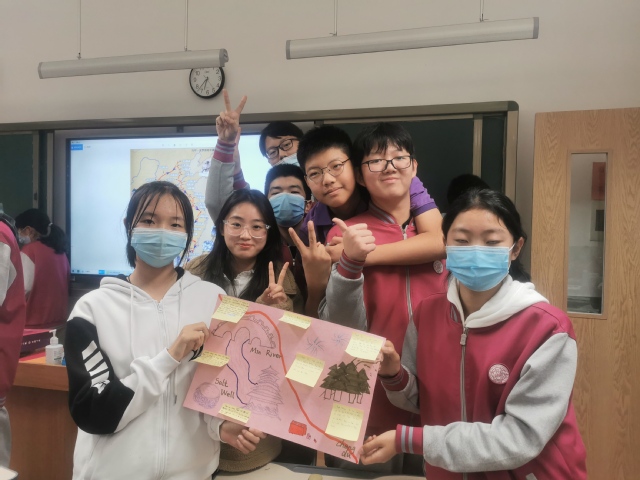
The judging results of the 6th China Youth Volunteer Service Project Competition and 2022 Volunteer Service Exchange, co-sponsored by the Central Committee of the Communist Youth League, the Central Civilization Office, the Ministry of Civil Affairs, the Ministry of Water Resources, the Ministry of Culture and Tourism, the National Health and Wellness Commission, the China Disabled Persons’ Federation, the CPC Shandong Provincial Committee and the Shandong Provincial People’s Government, were released. Nankai University volunteer service project “Interactive and Project-Based Public Service English Classroom Teaching” won the national bronze award. Previously, the project was awarded as an excellent project in the preliminary evaluation of the 6th China Youth Volunteer Service Project Competition. The project won the Silver Award in the 2022 Tianjin Youth Volunteer Service Project Competition.
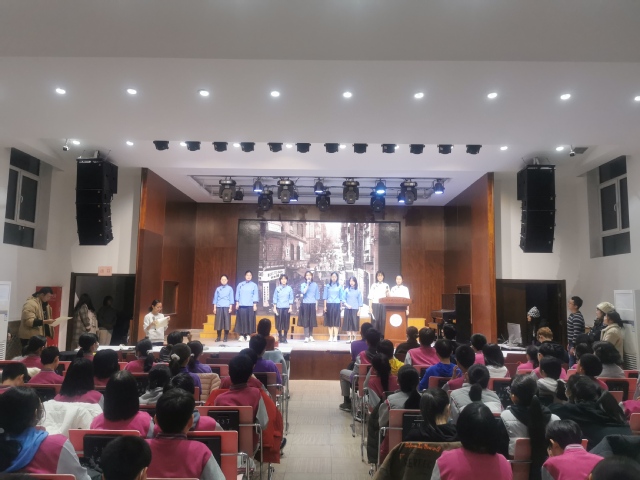
“Interactive and Project-Based Public Service English Classroom Teaching” is a language program initiated by the College of Foreign Languages to support the implementation of after-school services in the context of “double reduction”. The service team travels to partner schools once a week to conduct fun English classes. Chinese stories told in foreign languages are used as teaching materials. Through narration, interaction and guidance in making board games, crafts and micro movies, the team members help primary and secondary school students understand and pass on Chinese culture in the English classroom, and take on the mission of being cultural transmitters.
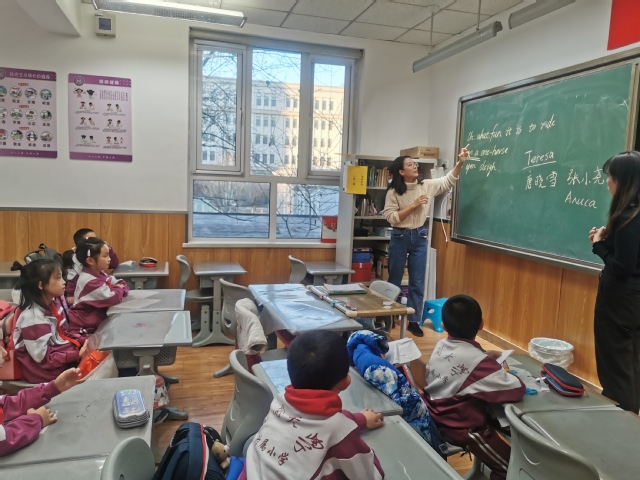
General Secretary Xi Jinping has repeatedly emphasized that telling a good Chinese story, spreading a good Chinese voice, and presenting a real, three-dimensional and comprehensive China are important tasks to strengthen China’s international communication capacity. Therefore, the youth volunteer service team always focuses on the core quality of “telling the Chinese story” as the main goal of teaching. They use “One Belt, One Road” and The Analects of Confucius as the core of the classroom teaching with representative Chinese stories. At the same time, the program is different from the traditional textbook-centered English classroom, and replaces simple textbooks with interactive methods such as board games, dramas, and micro movies. The program brings together English learning, Chinese culture and political education in a single course, stimulating primary and secondary school students’ interest in learning foreign languages and communicating with foreigners, cultivating their sense of identification with Chinese culture and Chinese stories, and setting sail on an exciting learning journey.
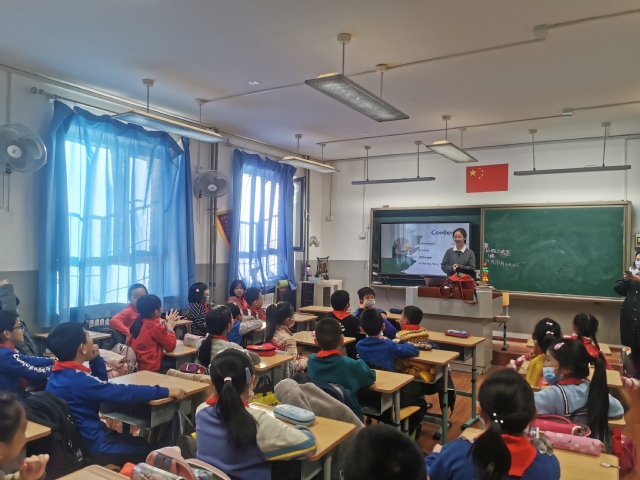
Qiu Chenxiao, the team leader and a 2019 English undergraduate student in the College of Foreign Languages, said, “At the beginning of the semester, the project team will provide primary and secondary schools with a list of self-designed courses and syllabi. For example, one of our more mature topics is the ‘The Design of Silk Road English Board Game’. We divided the lesson on Silk Road into several modules through a half-lesson of Chinese storytelling and a half-lesson of interactive board game making. At the end of the semester, the weekly modules were assembled into a complete Silk Road board game to learn the ‘Chinese story of the Silk Road’. This type of class has been very well received by the students.”
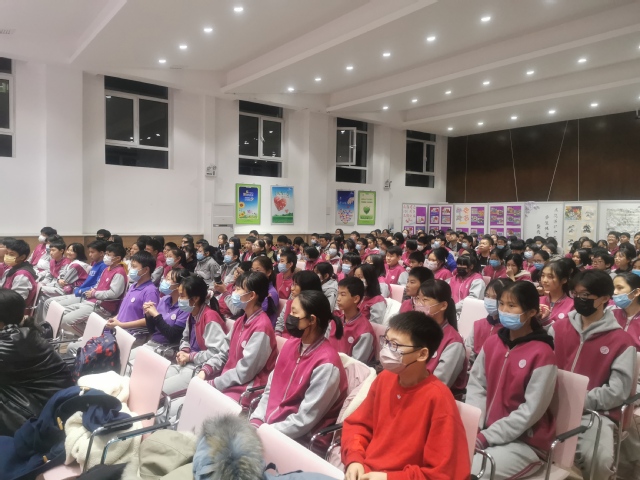
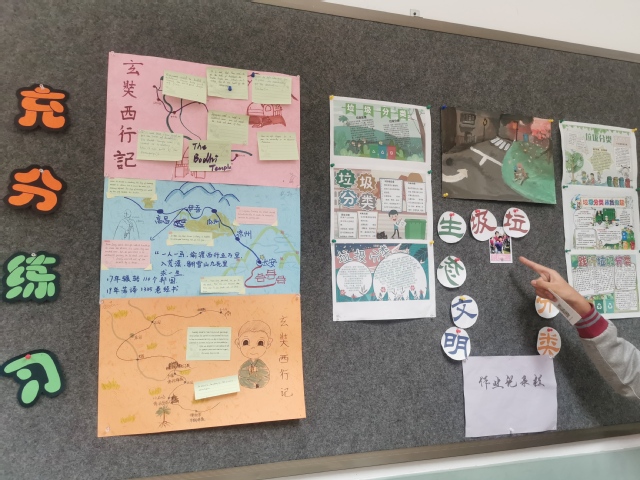
Over the years, the young volunteers of the College of Foreign Languages have always insisted on “contributing to the society with what they have learned” and provided interesting and rich foreign language courses for many primary and secondary schools in Tianjin. In 2021, in order to thoroughly implement the decision of the Party Central Committee and the State Council on “double reduction” and actively respond to the requirements of after-school services in Tianjin, and according to the guiding goal of “telling the Chinese story”, the project team formed a curriculum system with Nankai’s characteristics and foreign language expertise on the basis of integrating the teaching of children and teenagers for more than ten years, and connected with five partner primary and secondary schools in Tianjin to carry out after-school services. In the past two years, the project has carried out more than 200 services, involving more than 1,600 volunteers, serving nearly 4,000 people and a total of 3,600 hours of volunteer service. The project has helped primary and secondary schools to solve the problems of “students have nowhere to go, parents have difficulty in taking care of them, and teachers are under great pressure”, helped to implement the “double reduction” policy with youth commitment, and explored a new mode of telling the Chinese story in foreign languages.



